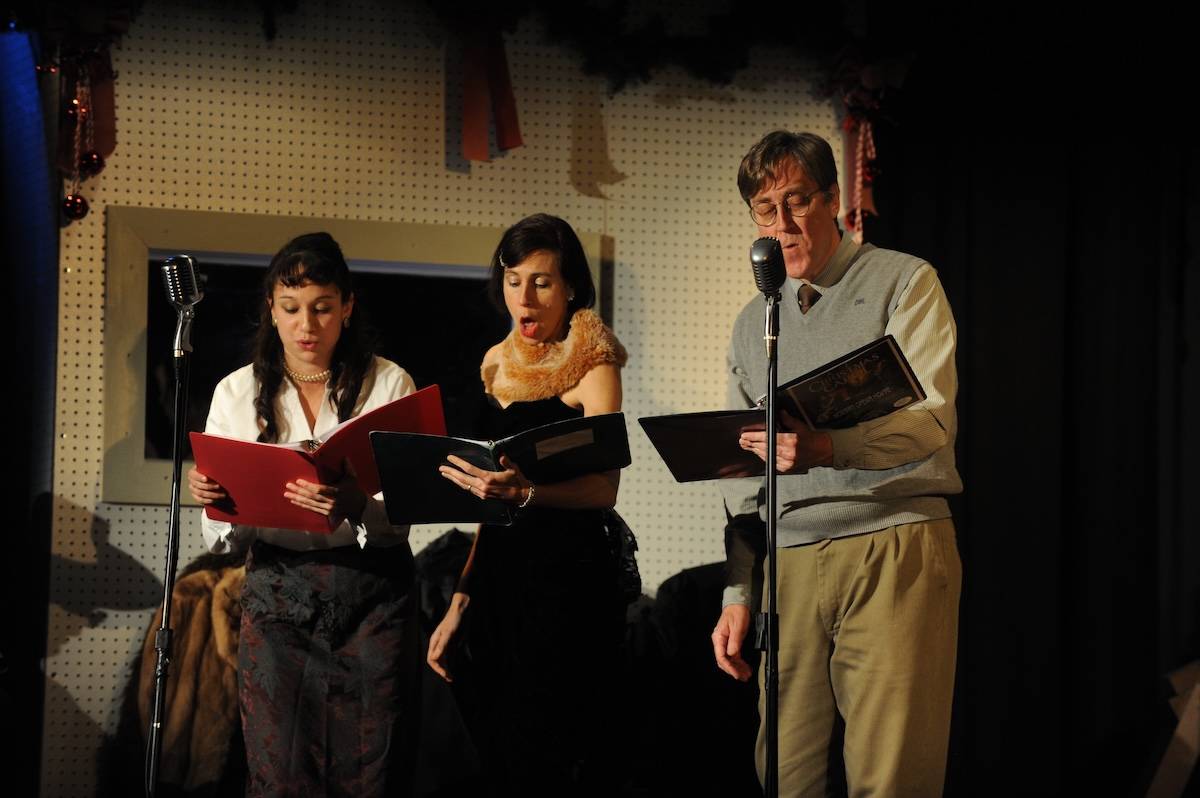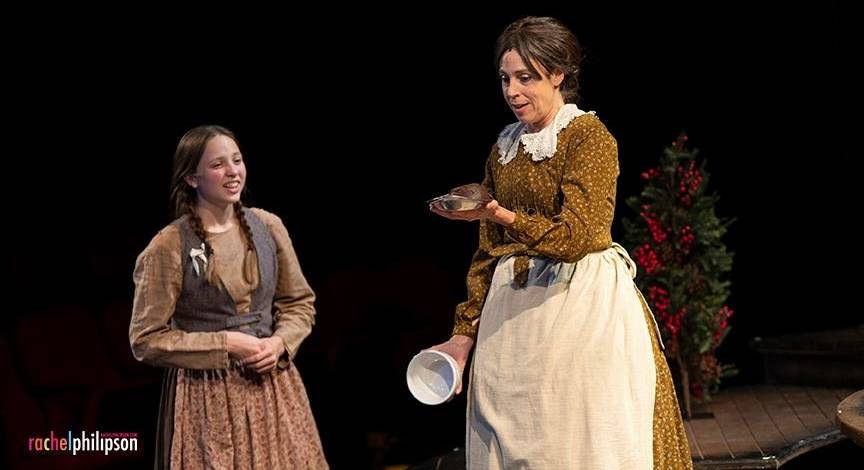
“Marley was dead to begin with. There is no doubt whatever about that. The register of his burial was signed by the clergyman, the clerk, the undertaker, and the chief mourner. Scrooge signed it. And Scrooge’s name was good upon Exchange, for anything he put his mind to. Old Marley was dead as a doornail.
Mind! I don’t mean to say that I know, of my own knowledge, what there is particularly dead about a doornail.”
And so begins one of the most wondrous, funny, moving, reflective, thoughtful bits of story about Christmas. Go ahead, read that again, out loud (or check out my version). Enjoy the solemn creepy rhythm of the first part and the quick lightness of the last line. Maybe slightly accentuate the word “Scrooge” when his name first appears.
These first words tell us everything that is to come. That the story will be creepy, that it will gently poke fun at how things are done (that death signature list!), that Scrooge works with money and is known for that (the Exchange or ‘Change), and that Marley’s death is the instigating incident.
I have loved this piece since I was a child, and have performed in it or directed it every year for more than two decades — except for this year — when travel plans prohibited my participation in a regional Equity House production. So this is my love letter to a wonderful morsel of holiday delight, and here’s 5 minutes of me reading bits and pieces by our woodstove fireplace.
Why I love A Christmas Carol so dang much

And I do love it. It makes me laugh, reflect, and believe in people again.
“[t]he only time I know of in the long calendar of the year, when men and women seem … to open their shut-up hearts freely and think of people as if they really were fellow passengers to the grave…”
He gets the listener to swallow some social justice medicine and like it
Remember, at this time, the reigning belief system in England was that if you were wealthy, it was because God meant you to be born into that class. Impoverished folks were lawless and conniving, who even if they were ‘saved,’ would never be as good as the privileged classes. There were also no safety laws or work protection, and preying upon the vulnerable made you an excellent business person. If you were ‘ill-formed’ on the outside (your body, your face), it was because you were ill-formed on the inside. And once you had made serious negative life choices, there was no going back, you were doomed (literally).
Into this cosmology, Dickens brings forth a story of reckoning for the rich, and a celebration of love, family, and shared wealth as the most important things in life. Most importantly of all, it’s not too late! Scrooge can redeem himself! All while filling the listener with shivers, laughter, and a warm-hearted glow. WOW.
The language!
Oh my gosh. Here’s another perfect morsel. Again, it’s best ingested while listening, as this story was meant to be heard even more than read. This next bit is as he climbs his stairs after being creeped out a bit by Marley’s face (could it be?) on the door knocker.
“Darkness was cheap, and Scrooge liked it. But before he shut his heavy door, he walked through his rooms to see that all was right. He had just enough recollection of the face to do that. Sitting room, bedroom, lumber room. All as they should be. Nobody under the table, nobody under the sofa…Nobody under the bed, nobody in the closet, nobody in his dressing gown, which was hanging in a suspicious attitude against the wall.”
Such cinematic writing! Dickens doesn’t tell us “Scrooge looked under his bed, his table” etc. No. We are there, WITH Scrooge, holding our breath as we dare to look under the bed, and as we throw a side eye to the dressing gown, and perhaps move a little further from it.
That the story is written to be shared aloud (Dickens toured extensively reading it to audiences and encouraged others to do so), and the narrative so actable, makes its transition to stage (or film or radio play) so organic. That being said, no production can include everything, which is part of the joy of seeing more than one movie version or performing in varying iterations, year after year.
It showcases the kaleidoscopic view of people from multiple walks of life
Unlike most writing in the English language by the mid-1800s, which focused on a group of people and the ties that connected them, Dickens paints us a whole London, even below the earth’s surface and beyond the city limits.
‘“What place is this?” asked Scrooge.
“A place where miners live, who labor in the bowels of the earth,” returned the Spirit. “But they know me. See.” A light shone from the window of a hut…they found a cheerful company…An old, old man, and woman, with their children and their children’s children and another generation beyond that, all decked out gaily in their holiday attire. The old man, in a voice that seldom rose above the howling of the wind upon the barren waste, was singing them a Christmas Song!’
A Christmas Carol — go watch it
Personally, I have both performed in and directed radio-play versions as well as a radio broadcast one. Those radio versions are dear to me, because I got to be some traditionally male characters as well, including the Turkey Boy, the Ghost of Christmas Present, and others. I’ve also had the honor of becoming Mrs. Cratchit along with the apple seller and other smaller roles many times, as well as developing and directing my own stage version.
And even when I’m doing 10 shows a week, I still take time to hunker down and watch the BEST film version: A Muppet Christmas Carol! Yup, it’s the best, hands down. Here’s why.
- Gonzo is Charles Dickens. Gonzo is able to be outrageous while always being sincere and full of integrity. When Gonzo speaks Dickens’ own words, it’s perfectly in character and we are not put off by the differentness, because that’s how Gonzo always is. Moreover, Gonzo’s emotional honesty illuminates the old language of the text, making it accessible for even younger children. Perhaps that’s why this film has more of the original narration than any other.
- It’s the sweetest Ghost of Christmas Past, and the scariest Ghost of Christmas Yet to Come.
- Michael Caine.
- The line about Tiny Tim not dying is the absolute best in this film version!
No matter what you have planned for the holidays this year, see if you can sneak some Dickens into your life, in any form. If you only have time for 5 minutes, you can listen to me reading a few of my favorite sections.
And so, as Tiny Tim observed, God bless Us, Every One!